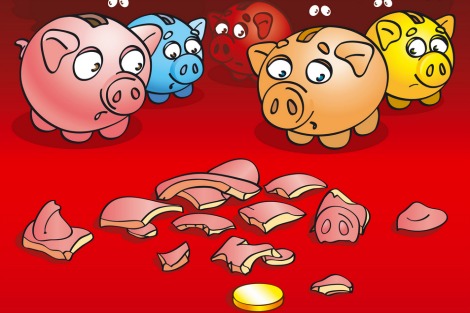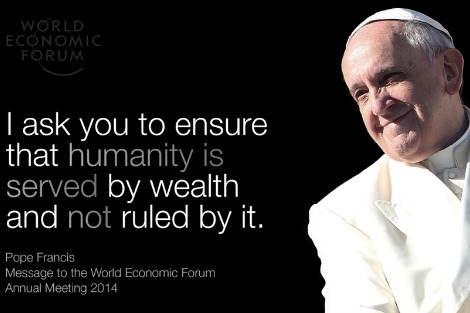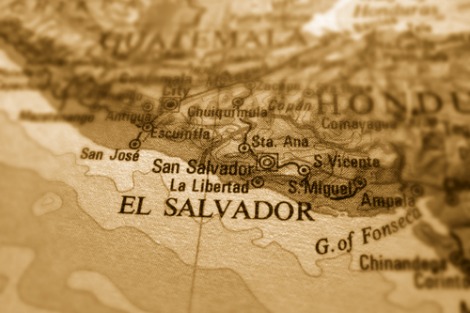Keywords: Economic Benefits
There are more than 200 results, only the first 200 are displayed here.
-

INTERNATIONAL
- Walter Hamilton
- 09 April 2014
3 Comments
The two powers in Asia on whom our economy and security depend, Japan and China, have reached an impasse. That should not constrain Australia from reaching out to both on the basis of mutual interest and shared values. China has a keen appreciation of the former and an abiding suspicion of appeals to the latter. Distinguishing one from the other and acting accordingly is the first great test of Abbott's statecraft.
READ MORE 
-

AUSTRALIA
- Michael Mullins
- 24 February 2014
22 Comments
Health minister Peter Dutton has refused to dismiss the possibility that a $6 ‘co-payment’ for GP visits could be announced in the May Federal Budget. This would be no more than a quick and easy temporary fix that would penalise ordinary Australians. It would simply defer the government's need to tackle the vested interests that are arguably the major cause of the inefficiencies that have made our health care system prohibitively expensive.
READ MORE 
-

INTERNATIONAL
- Cecily McNeill
- 17 February 2014
4 Comments
With the Australian economy in disarray, the Abbott Government is showing keen interest in New Zealand's projected unusually high growth. But NZ's status as a rock star economy is in question from commentators who say it has never recovered from major policy shifts 30 years ago. In particular its sexy image on the global business stage does not translate to a better life for those on low incomes, particularly women and children.
READ MORE 
-

AUSTRALIA
- Frank Brennan
- 11 February 2014
1 Comment
'The market for disability services will need to be underpinned with a strong and robust internal risk management framework. There will be an increasing number of for-profit operators in the sector. Hopefully the not-for-profit operators will make the necessary adaptations competing in the market and providing the ethos for the market to deliver services in a dignified, fair and transparent manner.' Frank Brennan's Leading the Way Seminar for the National Disability Service
READ MORE
-

ECONOMICS
- Bruce Duncan
- 04 February 2014
14 Comments
The budget problems are not caused by Newstart or disability pensions, which have been declining as a proportion of economic activity. Had the Howard Government not been so generous with its tax cuts to upper and middle income groups, there would today be no budget deficit.
READ MORE 
-

AUSTRALIA
- Andrew Hamilton
- 30 January 2014
27 Comments
Pope Francis' message to the World Economic Forum at Davos developed the Catholic understanding that government and business economic actions should be governed not by trust in the workings of the free market, but by care for the good of the whole human community. Coincidentally the Australian Government announced a review of welfare payments.
READ MORE 
-

AUSTRALIA
- Moira Byrne Garton
- 17 January 2014
3 Comments
Dr Maurice Newman, chairman of the Prime Minister's Business Advisory Council, last week cautioned the Government against listening to certain interests at the expense of the common good. His criticism of the former Government as 'reckless' for establishing and funding the National Disability Insurance Scheme reveals an upsetting indifference and a lack of awareness of the benefits of such a scheme both to individuals and to society as a whole.
READ MORE 
-

AUSTRALIA
- John Falzon
- 16 January 2014
1 Comment
Kevin Rudd says we need a 'new politics' or a 'new way'. Tony Abbott says we'll only get a new way by electing a new government. What is missing in both statements is the recognition that what we actually need is a new kind of economic democracy: a reconfiguration of our economic prioritising away from individualism towards the common good, and towards the participation of all rather than the exclusion of many.
READ MORE 
-

INTERNATIONAL
- Andrew Hamilton
- 28 November 2013
16 Comments
El Salvador is a small, largely agricultural society, with one of the highest population densities in the world. A largely Australian owned mining company proposes to mine for gold there, at great social and environmental cost to the local population. In Australia the wellbeing of people in areas affected by mining is central in the granting of permits. Are we willing to accept a lowering of standards for the overseas operations of Australian companies?
READ MORE 
-

AUSTRALIA
- Moira Byrne Garton
- 20 November 2013
16 Comments
Dr Maurice Newman, chairman of the Prime Minister's Business Advisory Council, last week cautioned the Government against listening to certain interests at the expense of the common good. His criticism of the former Government as 'reckless' for establishing and funding the National Disability Insurance Scheme reveals an upsetting indifference and a lack of awareness of the benefits of such a scheme both to individuals and to society as a whole.
READ MORE 
-

AUSTRALIA
- Mike Bowden
- 19 November 2013
21 Comments
Jordan Jenkins, owner of the Tennant Creek Hotel, let the cat out of the bag: Tennant Creek is addicted. 'I mean, we are not going to go bankrupt so police can present stats to people,' he said. It seems the police are doing their job too well. Alcohol sales are declining. Profits are at risk. And so the liquor licensees of this remote town with a large Aboriginal population are pulling out of an alliance designed to reduce alcohol related harm.
READ MORE 
-

RELIGION
- Andrew Hamilton
- 14 November 2013
14 Comments
In a welcome first step, the Vatican has invited lay Catholics to offer their views on the family. The document that accompanies the survey represents a fairly traditional Catholic theology of the family, setting it within a high theology and expressed in elevated language. This theology has been developed principally by celibate men, no doubt familiar with family life through their childhood and pastoral ministry, but at a distance from it.
READ MORE 